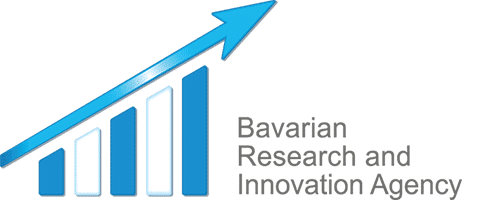
S3-4AlpClusters
New S3 innovation model for regional innovation strategies in the Alpine region
The “S3-4AlpClusters” project, funded by the European Commission through the “Interreg Alpine Space” funding program, examined how cluster structures in the respective Alpine countries can support regional innovation strategies in the Alpine region. Europe’s regional governments are developing innovation strategies to create a smart funding landscape that responds to the needs of specific industrial and service sectors. The English term for these special innovation strategies is “Smart Specialization Strategies” (S3). Clusters, in turn, are networks of companies and research institutes.
The cluster policy is based on the principle that the competitiveness of companies in a global economic order also clearly depends on local factors: physical proximity, personal exchange and informal meetings. Companies in clusters are more innovative and productive because they can access a dense network of specialized suppliers, relevant research institutions and specialized professionals in close proximity. In Bavaria alone there are 17 such networks in various sectors and technologies relevant to Bavaria.
For the transnational project S3-4AlpClusters, 14 project partners from eleven regions of the Alpine region have joined forces with their clusters. The goals of the project included strengthening the impact of regional economic policy on companies and the mutual influence of clusters and S3, as well as finding similarities and differences between the S3 priorities of the regions and expanding them with regard to cooperative strategies. The result of the EU project S3-4AlpClusters is an S3 innovation model that supports regional governments – but also smaller units such as counties or cities – in designing a multi-year dynamic innovation strategy. Dynamic because the demands on the players in the respective industrial and service sector can change constantly – be it, for example, through innovations in the field of artificial intelligence or through adjustments to production processes in the sense of a circular economy. The active integration of these changes, the so-called “transformative activities”, into the regional innovation strategies increases their resilience and adaptability to future disruptive innovations.
A “Cluster Action Plan” was developed to implement the S3 innovation model, which provides the clusters with specific methods and tools to actively involve them at all levels of the process. This plan has been tested with 30 pilot clusters across the Alps. This resulted in the proposal for a supra-regional, Alps-wide funding program entitled “Alpine Innovation Cluster Express” (AICE) to support the cooperative development of transformative activities.
From the circle of experts to broad application
After 30 months of project duration, the EU project S3-4AlpClusters ended in April 2019 with a policy briefing in Venice, Italy. There, the consortium presented its findings to policymakers, regional innovators and members of the European Commission. The Bavarian Research Alliance (BayFOR) was actively involved in all project activities as a project partner in S3-4AlpClusters. The Bavarian automotive cluster of Bayern Innovativ GmbH was represented with its expertise as a member of the Advisory Board of S3-4AlpClusters and provided the project consortium with advice. The project received funding (ERDF Grant) of €1.93 million from the European Commission as part of the Alpine space program Interreg Alpine Space. The total budget of the project was €2.52 million.

